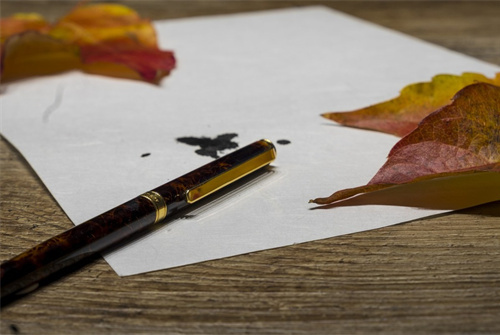關(guān)于文明的英文好句子匯集50句

關(guān)于文明禮儀的英文名言
中華民族素來(lái)是一個(gè)謙恭禮讓的文明禮儀之邦。華夏兒女的舉手投足、一言一行,都體現(xiàn)著我們中國(guó)人的氣質(zhì)與素養(yǎng)。下面是關(guān)于文明禮儀的英文名言的內(nèi)容,歡迎閱讀!
【第1句】:家庭是文明的核心。
Family is the core of civilization.
【第2句】:禮儀周全能息事寧人。
Considerate etiquette can avoid trouble.
【第3句】:無(wú)禮是無(wú)知的私生子。
Rudeness is the illegitimate child of ignorance.
【第4句】:寬容是文明的唯一考核。
Forgiveness is the only civilization.
【第5句】:文明其精神,野蠻其體魄!
Civilization its spirit, savage its body!
【第6句】:禮貌是人類共處的金鑰匙。
Politeness is the key of human coexistence.
【第7句】:愛(ài)國(guó)是文明人的首要美德。
Patriotism is the first virtue of civilized men.
【第8句】:禮貌使人類共處的金鑰匙。
Manners make human co-existence of golden key.
【第9句】:學(xué)校者,文明進(jìn)化之泉源也。
Also the springs of school, the evolution of civilization.
【第10句】:醫(yī)生是我們文明世界的精華。
The doctor is the essence of our civilization.
【第11句】:文明就是要造就有修養(yǎng)的人。
Civilization is to make cultured man.
【第12句】:侈而惰者貧,而力而儉者富。
A tiny and idler is poor, and force and waste is rich.
【第13句】:文明就是要造成有修養(yǎng)的人。
Civilization is to has the tutelage of people.
【第14句】:人人需要贊美,你我都不例外。
Everyone need to praise, you and I are no exception.
【第15句】:親善產(chǎn)生幸福,文明帶來(lái)和諧。
Goodwill produce happiness, civilization brings harmony.
【第16句】:文明的建立的不是機(jī)器而是思想。
The establishment of a civilization is not the machine but the ideas.
【第17句】:良好的禮貌是由微小的'犧牲組成。
Good manners are made up of tiny sacrifice.
【第18句】:為人粗暴意味著忘卻自己的尊嚴(yán)。
A violent means to forget their own dignity.
【第19句】:禮貌和文明是我們共處的金鑰匙。
Politeness and the civilization is the key we coexist.
【第20句】:禮貌經(jīng)常可以替代最高貴的感情。
Good manners often can replace the most noble feelings.
【第21句】:文明抑揄多數(shù)人,贊揚(yáng)極少數(shù)人。
Currently civilization or the majority of people, praised the few.
【第22句】:禮貌是有教養(yǎng)的人的第二個(gè)太陽(yáng)。
Courtesy is the second sun in our educated person.
【第23句】:學(xué)校是學(xué)習(xí)之所,文明是成功之本。
The school is the place of learning, civilization is the parent of success.
【第24句】:手邊留情花似錦,腳下留情草如茵!
Hand spare flower like brocade, spare grass at the foot of the carpet!
【第25句】:弘獎(jiǎng)學(xué)術(shù)啟文明,栽桃種李最多情。
Hong award for academic and civilization, planted peach kind of lee's most affectionate.
【第26句】:禮貌周全不花錢(qián),卻比什么都值錢(qián)。
Worth civility at no cost, but more than anything.
【第27句】:講話氣勢(shì)洶洶,未必就是言之有理。
Aggressive, are not necessarily makes sense.
【第28句】:白天文明不精神,晚上精神不文明。
The day is not spiritual and mental civilization at night.
【第29句】:只有尊敬別人的人,才有權(quán)受人尊敬。
Only have the right to respect for others, respect.
【第30句】:沒(méi)有充分閑暇,就不可能有高度文明。
No good leisure, is impossible to have highly civilization.
【第31句】:沒(méi)有禮貌的人,就像沒(méi)有窗戶的房屋。
Rude people, like a house without Windows.
【第32句】:隨著文明的發(fā)展,詩(shī)歌幾乎勢(shì)在必衰。
With the development of civilization, poetry almost potential will decline.
【第33句】:禮節(jié)及禮貌是一封通向四方的推薦信。
Etiquette and manners is a letter to the four sides of recommendation.
【第34句】:不是不能見(jiàn)義,怕的是見(jiàn)義而不勇為。
Can't see, not afraid of is righteous and not doing.
【第35句】:真正的文明是所有人種植幸福的結(jié)果。
The real civilization is the result of all people grow happiness.
【第36句】:富裕并不帶來(lái)文明,而文明產(chǎn)生財(cái)富。
Wealth does not bring civilization, and civilization to produce wealth.
【第37句】:理智要比心靈為高,思想要比感情可靠。
Reason is higher than the soul thought than relationship is reliable.
【第38句】:讓我們把不名譽(yù)作為刑罰最重的部分吧!
Let's put the dishonor as part the heaviest punishment!
【第39句】:在宴席上最讓人開(kāi)胃的就是主人的禮節(jié)。
In the banquet on the most let a person appetizer is the master's etiquette.
【第40句】:微笑是我們的語(yǔ)言,文明是我們的信念。
A smile is our language, civilization is our belief.
【第41句】:一個(gè)人最傷心的事情無(wú)過(guò)于良心的死滅。
A man the most sad thing is the conscience of die out.
【第42句】:在人與人的交往中,禮儀越周到越保險(xiǎn)。
In interpersonal communication, the etiquette is more considerate more insurance.
【第43句】:有兩種和平的暴力,那就是法律和禮貌。
There are two kinds of violence of peace, that is the law and politeness.
【第44句】:普通話同青春攜手,文明語(yǔ)和時(shí)尚并肩。
Language and mandarin, hand in hand with youth civilization fashion side by side.
【第45句】:彬彬有禮的風(fēng)度,主要是自我克制的表現(xiàn)。
Polite manners, mainly is the expression of the self-restraint.
【第46句】:知識(shí)使人變得文雅,而交際使人變得完善。
Knowledge makes one become elegant, and communication makes people become perfect.
【第47句】:禮節(jié)是所有規(guī)范中最微小卻最穩(wěn)定的規(guī)范。
Etiquette is the smallest specification of all but the most stable specification.
【第48句】:一個(gè)文明的社會(huì)不應(yīng)當(dāng)有這樣野蠻的法律。
A civilized society should not have such a brutal law.
【第49句】:禮貌是最容易做到的事,也是最珍貴的東西。
Courtesy is the most easy to do, which is the most precious thing.
【第50句】:人間的面孔從未像在葬禮中看上去那么世俗。
Human face has never looked so secular in the funeral.
關(guān)于雨果名言英文
第1條 He is fair in love and acting as she is a piece of infatuation.
第2條 使人變渺小的感情可恥,使人變孩子的感情可貴。
第3條 我的風(fēng)度是貴族的,但我的'行為卻是民主的。
第4條 My presence is noble, but my behavior is democracy.
第5條 精神象乳汁一樣可以養(yǎng)育人,智慧便是一只乳房。
第6條 花朵預(yù)兆著果實(shí),少女夢(mèng)想著愛(ài)情。
第7條 生活中最大的幸福是堅(jiān)信有人愛(ài)我們。
第8條 Books are friends, although there is no passion, but very loyal.
第9條 所有的植物都是一盞燈,而香味,就是它的光。
第10條 有許多可愛(ài)的女性,但沒(méi)有完美無(wú)缺的女性。
第11條 We the people have their own idol.
第12條 The day belongs to all people, why only darkness for me?
第13條 The supreme happiness of life is the conviction that we are loved.
第14條 樹(shù)干總是一成不變,樹(shù)葉卻時(shí)落時(shí)生。
第15條 慈悲也不過(guò)是一種比較高級(jí)的法律而已。
第16條 if you want to call the public wait patiently statement immediately begun to them.
第17條 A beggar, I don’t know where to beg for love.
第18條 真正的強(qiáng)者,是那種具有自制力的人。
第19條 謹(jǐn)慎比大膽要有力量得多。
第20條 這世上只有生物,既無(wú)所謂善,也無(wú)所謂惡。
第21條 做好人容易,做正直的人卻難。
第22條 誰(shuí)虛度年華,青春就要褪色,生命就要拋棄他。
第23條 Music expresses something beyond narration but have to say.
第24條 任何卓越的勝利總多少是大膽的成果。
第25條 All major events, the consequences are often hard to predict.
第26條 他入睡,我長(zhǎng)眠,同是夢(mèng)中人,正好相依相伴。
第27條 文化,不應(yīng)將其提煉精制,而應(yīng)使其純化。
第28條 凡是重大的事件,其后果往往難以預(yù)料。
第29條 Each teach a child, reducing a scum.
第30條 People walk at night, eyes always staring at the lights.
第31條 Flowers bodes fruits, young girl dreams of love.
第32條 白天是屬于所有人的,為什么只給我黑暗?
第33條 科學(xué)到了最后階段,便遇上了想象。
第34條 當(dāng)一個(gè)人長(zhǎng)時(shí)間仰望天空的時(shí)候,便能看見(jiàn)上帝。
第35條 Make the person become small feeling shame, make the person the child’s feelings.
第36條 It’s progress, people ought to be phenomenon.
第37條 人有痛處,最好的愛(ài)護(hù),難道不是絕不去碰它嗎?
第38條 Falls in the fullest the happiness of life is the conviction that we are loved.
第39條 Nightmare is a continuation of the disappointment, his dream at night, daytime fantasies.
第40條 人生至高無(wú)上的幸福,莫過(guò)于確信自己被人所愛(ài)。
第41條 Soul when hungry, need water to quench thirst, no matter the water is poisonous.
第42條 He fall asleep, I slept, and god wants us to meet a few wrong people be, just stay together.
第43條 每教好一個(gè)孩子,就減少一個(gè)敗類。
第44條 孤獨(dú)可以使人能干,也可以使人笨拙。
第45條 Love is the folly, but is the wisdom of god.
第46條 有你在,就沒(méi)有流亡。
第47條 一個(gè)乞丐,是不知向何處乞求愛(ài)情的。
第48條 The soul in the dark is guilty, but the real is made of sinners is dark.
第49條 This is the evening sun, we regard it as the dawn light.
第50條 When a man look up at the sky for a long time, can see god.
第51條 Not born beauty! Beauty is only the love of beauty.
第52條 Has not been heard not the silence of the reason.
第53條 Do people easily, the upright do is difficult.
第54條 Nothing more than money can corrode the heart.
第55條 人生下來(lái)不是為了拖著鎖鏈,而是為了展開(kāi)雙翼。
第56條 Knowledge is the life journey of food.
第57條 世間有那么一種躲避,恰好像是為了追求。
第58條 人類有一個(gè)暴君,那就是蒙昧。
第59條 愛(ài)和曾愛(ài)過(guò),這就夠了。不必再作其他希求。
第60條 Every monument, is a novel.
第61條 只有一個(gè)辦法可以拒絕明天,那便是死去。
第62條 Should believe that he is the victor of life.
第63條 Refined culture, should not be refined, and should make its purification.
第64條 Spirit like milk can nurture people, wisdom is a breast.
第65條 驕傲是所有英雄人物都能受到傷害的處所。
第66條 愛(ài)情本是人干的蠢事,卻又是上帝的智慧。
第67條 Pain is always keep beside the joy.
第68條 機(jī)會(huì)是不守紀(jì)律的。
第69條 沒(méi)有被聽(tīng)見(jiàn)不是沉默的理由。
第70條 The supreme happiness in life, is the conviction that we are loved.
第71條 There are so a kind of escape, just like in pursuit.
第72條 Since the night from the throne, let the light from the grave!
第73條 他是情場(chǎng)做戲,她卻一片癡情。
第74條 People have pain, the best love, don’t never to touch it?
第75條 Loneliness can make the person capable, can also make a person clumsy.
第76條 Who to idle away one’s time, youth will fade, life will be abandoned him.
第77條 The real strong, is the kind of person who have self-control.
第78條 書(shū)籍,引領(lǐng)我散步在別人的靈魂中。
第79條 Caution is much more powerful than bold.
第80條 現(xiàn)在,我證實(shí),發(fā)生了一次盜竊,有兩名竊賊。
第81條 魂饑渴時(shí),需要水來(lái)解渴,不管這水是不是有毒。
關(guān)于講文明禮儀名言
文明禮儀是為人處事中很重要的一個(gè)環(huán)節(jié),下面就是小編為您收集整理的關(guān)于講文明禮儀名言的相關(guān)文章,希望可以幫到您,如果你覺(jué)得不錯(cuò)的話可以分享給更多小伙伴哦!
關(guān)于講文明禮儀名言
【第1句】:博學(xué)于文,約之以禮。——摘自:孔子
【第2句】:禮,經(jīng)國(guó)家,定社稷,序民人,利后嗣。——摘自:左傳
【第3句】:禮,天之經(jīng)也,民之行也。——摘自:左傳
【第4句】:禮節(jié)及禮儀是一封通向四方的推薦信。——摘自:西班牙女王伊麗莎白
【第5句】:禮儀經(jīng)常可以替代最高貴的感情。——摘自:梅里美
【第6句】:禮儀使有禮儀的人喜悅,也使那些受人以禮儀相待的人們喜悅。——摘自:孟德斯鳩
【第7句】:禮儀是兒童與青年所應(yīng)該特別小心地養(yǎng)成習(xí)慣的第一件大事。——摘自:約翰·洛克
【第8句】:禮儀是人類共處的金鑰匙。——摘自:松蘇內(nèi)吉
【第9句】:禮儀是一種回收有禮儀的尊重的愿望。星球禮品禮品冊(cè)禮品商務(wù)送禮會(huì)議禮品。——摘自:法·拉羅什福科
【第10句】:禮儀是有教養(yǎng)的人的.第二個(gè)太陽(yáng)。——摘自:赫拉克利特
【第11句】:禮儀是最容易做到的事,也是最珍貴的東西。—岡察爾
【第12句】:禮儀像只氣墊,里面什么也沒(méi)有,卻能奇妙地減少顛簸。——摘自:約翰遜
【第13句】:禮儀之風(fēng)為每一個(gè)人帶來(lái)文明、溫暖和愉快。——摘自:諾·文·皮爾
【第14句】:禮儀周全不花錢(qián),卻比什么都值錢(qián)。——摘自:西班牙。塞萬(wàn)提斯
【第15句】:禮儀是微妙的東西,它既是人們交際所不可或缺的,又是不可過(guò)于計(jì)較的。——摘自:培根
【第16句】:禮儀是在他的一切別種美德之上加上一層藻飾,使它們對(duì)他具有效用,去為他獲得一切和他接近的人的尊重與好感。——摘自:洛克
【第17句】:禮儀周全能息事寧人。——摘自:儒貝爾
【第18句】:禮以行義,義以生利,利民,政之大節(jié)也。——摘自:左傳
【第19句】:禮義廉恥,國(guó)之四維,四維不張,國(guó)乃滅亡。——摘自:《管子》
【第20句】:禮義生于富足,盜竊起于貧窮。——摘自:漢·王符
【第21句】:禮者,人道之極也。——摘自:荀子
【第22句】:利益,是聰明人想出來(lái)的與愚人保持距離的一種策略。——摘自:愛(ài)默生
【第23句】:良好的禮儀是由微小的犧牲組成。——摘自:愛(ài)默生
【第24句】:良心是由人的知識(shí)和全部生活方式來(lái)決定的。——摘自:馬克
【第25句】:美德是精神上的一種寶藏,但是使它生出光彩的則是良好的禮儀。——摘自:約翰·洛克
【第26句】:蜜蜂從花中啜蜜,離開(kāi)時(shí)營(yíng)營(yíng)的道謝。浮夸的蝴蝶卻相信花是應(yīng)該向他道謝的。 ——摘自:泰戈?duì)?/p>
【第27句】:謙恭有禮,人人歡迎。——摘自:托馬斯。福特
【第28句】:讓,德之主也,讓之謂懿德。——摘自:左傳
【第29句】:讓者,禮之實(shí)也。——摘自:朱熹
【第30句】:人必知道而后知愛(ài)身,知愛(ài)身而后知愛(ài)人,知愛(ài)人而后知保天下。
【第31句】:人不能象走獸那樣活著,應(yīng)該追求知識(shí)和美德。——摘自:但丁
【第32句】:人間的面孔從未像在葬禮中看上去那么世俗——摘自:?jiǎn)獭ぐ麂姿?/p>
【第33句】:人們最看重的是特權(quán),哪怕是主持葬禮的特權(quán)。——摘自:詹·拉·洛威爾
【第34句】:人無(wú)禮不立,事無(wú)禮不成,國(guó)無(wú)禮不寧。——摘自:荀子
【第35句】:人無(wú)禮則不生,事無(wú)禮則不成,國(guó)家無(wú)禮則不寧。——摘自:荀子
【第36句】:人有禮則安,無(wú)禮則危。——摘自:《禮記》
【第37句】:人在智慧上應(yīng)當(dāng)是明豁的,道德上應(yīng)該是清白的,身體上應(yīng)該是清潔的。——摘自:契訶夫
【第38句】:人之有德于我也,不可忘也;吾有德于人也,不可不忘也。
【第39句】:仁者愛(ài)人,為仁由己。唯仁者能好人,能惡人。克己復(fù)禮為仁,一日克己復(fù)禮,天下歸仁焉。
【第40句】:仁之發(fā)處自是愛(ài)。——摘自:朱熹
【第41句】:如果把禮儀看得比月亮還高,結(jié)果就會(huì)失去人與人真誠(chéng)的信任——摘自:培根
【第42句】:善氣迎人,親如弟兄;惡氣迎人,害于戈兵。——摘自:管仲
【第43句】:夫君子之行,靜以修身,儉以養(yǎng)德,非淡泊無(wú)以明志,非寧?kù)o無(wú)以致遠(yuǎn)。——摘自:諸葛亮
【第44句】:生活里最重要的是有禮儀,它比最高的智慧,比一切學(xué)識(shí)都重要。——摘自:俄。赫爾岑
【第45句】:生命是短促的,然而盡管如此,人們還是有時(shí)間講究禮儀——摘自:愛(ài)默生
【第46句】:世界上最廉價(jià),而且能得到最大收益的一項(xiàng)物質(zhì),就是禮節(jié)。——摘自:拿破侖·希爾
【第47句】:誰(shuí)在平日節(jié)衣縮食,在窮困時(shí)就容易度過(guò)難關(guān);誰(shuí)在富足時(shí)豪華奢侈,在窮困時(shí)就會(huì)死于饑寒。——摘自:薩迪
【第48句】:所守者道義,所行者忠信,所惜者名節(jié)。
【第49句】:土扶可城墻,積德為厚地。——摘自:李白
【第50句】:不患位之不尊,而患德之不崇;不恥祿之不伙,而恥智之不博。——摘自:張衡
【第51句】:唯寬可以寬人,唯厚可以載物。君子以厚德載物。——摘自:易傳
【第52句】:道之以告德,齊之以禮。——摘自:論語(yǔ)
【第53句】:我深信只有有道德的公民才能向自己的祖國(guó)致以可被接受的敬禮。——摘自:盧梭
【第54句】:無(wú)禮是無(wú)知的私生子。——摘自:巴特勒
【第55句】:勿以惡小而為之,勿以善小而不為。惟賢惟德,能服于人。——摘自:劉備
【第56句】:心誠(chéng)氣溫,氣和辭婉,必能動(dòng)人。——摘自:薛宣《談書(shū)錄》
【第57句】:信則人任焉。——摘自:論語(yǔ)
【第58句】:行一件好事,心中泰然;行一件歹事,衾影抱愧。——摘自:神涵光
【第59句】:一旦學(xué)會(huì)了眼睛的語(yǔ)言,表情的變化將是無(wú)限的。——摘自:泰戈?duì)?/p>
【第60句】:一個(gè)人的禮儀,就是一面照出他的肖像的鏡子。——摘自:歌德
關(guān)于朋友的英文名言
【第1句】:a bosorn friend after brings distant land near 海內(nèi)存知己,天涯若比鄰.
【第2句】:A brother may not be a friend, but a friend will always be a brother. 兄弟未必是朋友,而朋友總是兄弟。
【第3句】:A father is a treasure, a brother is a comfort, but a friend is both. 父親是財(cái)富,兄弟是安慰,朋友兼而有之。
【第4句】:A friend exaggerates a man’s virtue, an enemy his crimes. 朋友宣揚(yáng)人的'美德,敵人夸大人的罪過(guò)
【第5句】:Without confidence there is no friendship. 沒(méi)有信任,就沒(méi)有友誼。
【第6句】:A friend indeed is a friend in need.患難見(jiàn)真情和患難之交才是真正的朋友.
【第7句】:A friend is a second self. 朋友是第二個(gè)自我。
【第8句】:A friend is easier lost than found.得朋友難,失朋友易。
【第9句】:A friend is never known till a man has need.需要之時(shí)方知友。
【第10句】:A friend that you buy with presents will be bought from you.
【第11句】:A friend without faults will be found.沒(méi)有十全十美的朋友。
【第12句】:A hedge between keeps friendship green.君子之交淡如水(字面:朋友之間有所界限 才能讓友誼之樹(shù)長(zhǎng)青)。








